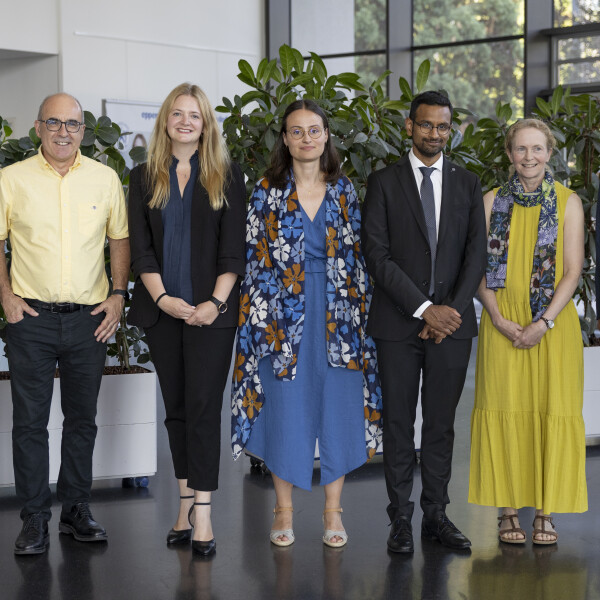Dr Varun Venkataramani, a clinician-scientist at Heidelberg University Hospital, has been awarded the prestigious 2025 Eppendorf Award for Young European Investigators – and the €20,000 prize – for his pioneering work on how neuron–tumour interactions drive brain cancer progression.
Now in its 30th year, the award is presented by life sciences company Eppendorf SE, based in Hamburg, and recognises outstanding contributions in biomedical research by scientists under 35. The independent jury, chaired by Professor Laura Machesky (University of Cambridge), praised Dr Venkataramani’s research as a vital advance in the fast-emerging field of neuro-oncology.
His team’s discoveries have helped reveal how cancer cells in the brain form synapse-like connections with neurons, hijacking the nervous system’s own mechanisms to fuel tumour growth and invasion. The findings are laying the foundations for cancer neuroscience as a new frontier in therapy development.
Dr Venkataramani said:
“I am deeply honoured and grateful to receive the 2025 Eppendorf Award for Young European Investigators. This recognition reflects the dedication and innovative spirit of my entire research team, whose tireless efforts have made our discoveries possible. I extend my sincere thanks to my mentors, collaborators, and family for their unwavering support throughout this journey.”
The award ceremony took place on 3 July 2025 at EMBL’s Advanced Training Centre in Heidelberg, Germany.
The ceremony also celebrated the award’s 30-year legacy, with reflections from Professor Dr. Stephen P. Jackson, the inaugural winner in 1995, who delivered an inspiring speech on the impact of early-career recognition. Dr. Clemens Plaschka, last year’s winner from the IMP – Institute of Molecular Pathology in Vienna, also spoke at the event, sharing insights from his research journey and the opportunities the award helped unlock.
Finalists also recognised for exceptional science
Two other outstanding young researchers were honoured as finalists:
Dr Fena Ochs, Group Leader at the Biotech Research & Innovation Centre, University of Copenhagen, was commended for her pioneering studies on cohesin-mediated sister chromatid cohesion. Her work has clarified how human cohesin functions as a monomer to bind chromatids together and has pushed the boundaries of single-molecule analysis of 3D chromatin structure. The jury noted the significance of her findings for understanding chromosome segregation, genome organisation, and age-related infertility.
Dr Juliette Fedry, Group Leader at the MRC Laboratory of Molecular Biology in Cambridge, UK, was recognised for her innovative application of FIB-CryoET to visualise how cellular stress modulates protein translation. Her work offers unprecedented insight into translational control in healthy and diseased tissues, with the potential to illuminate new mechanisms in neurodegeneration, cancer, and metabolic disorders. The jury praised her ability to combine technical excellence with biological relevance.
Celebrating three decades of early-career excellence
The Eppendorf Award, established in 1995 and presented in partnership with Nature, continues to support and spotlight the next generation of biomedical leaders. The award winner is chosen by a panel of leading scientists including: Laura Machesky (Cambridge), Sadaf Farooqi (Cambridge), Madeline Lancaster (Cambridge), Ben Lehner (Barcelona), Stefan Raunser (Dortmund), and Michael Sixt (Austria).
More information online
